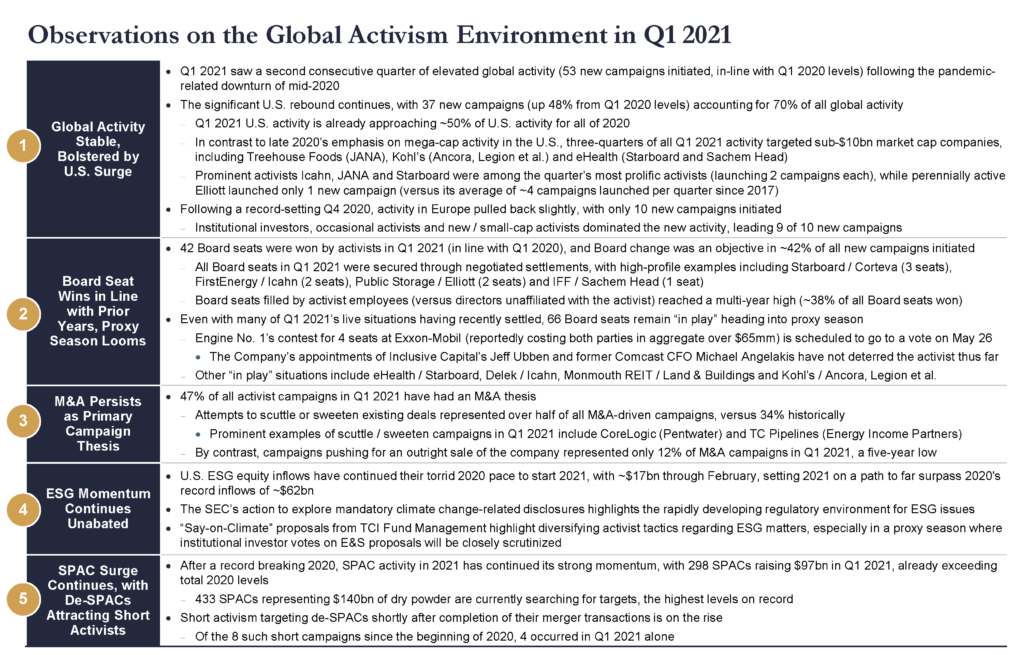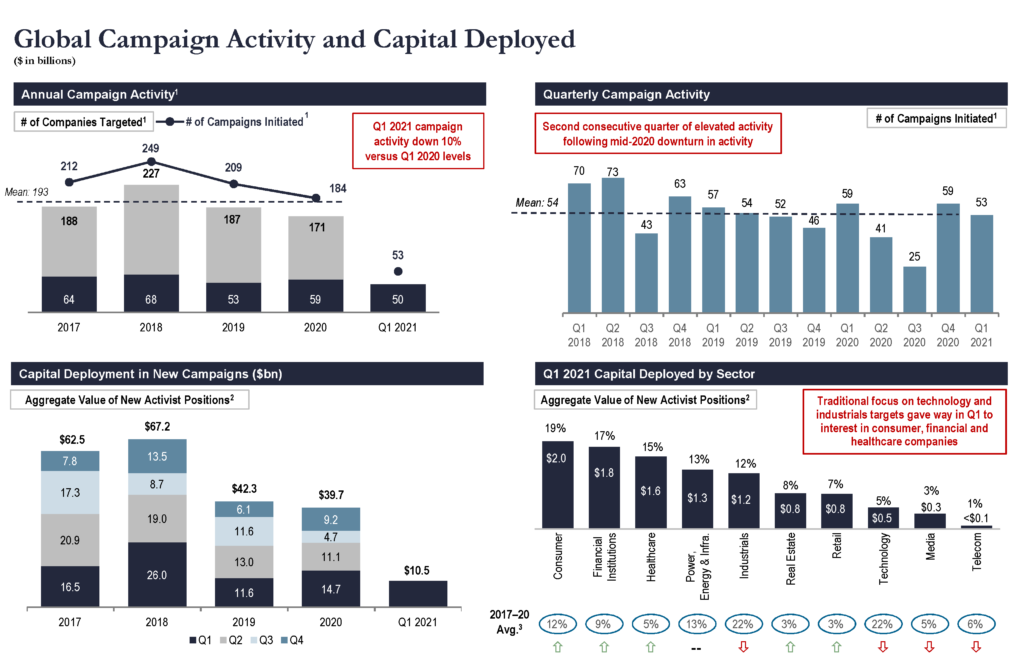Jim Rossman is Managing Director and Head of Shareholder Advisory; Mary Ann Deignan is Managing Director; and Christopher Couvelier is Director at Lazard. This post is based on their Lazard memorandum. Related research from the Program on Corporate Governance includes The Long-Term Effects of Hedge Fund Activism by Lucian Bebchuk, Alon Brav, and Wei Jiang (discussed on the Forum here); Dancing with Activists by Lucian Bebchuk, Alon Brav, Wei Jiang, and Thomas Keusch (discussed on the Forum here); Don’t Let the Short-Termism Bogeyman Scare You by Lucian Bebchuk (discussed on the Forum here); and Who Bleeds When the Wolves Bite? A Flesh-and-Blood Perspective on Hedge Fund Activism and Our Strange Corporate Governance System by Leo E. Strine, Jr. (discussed on the Forum here).
-
Supported By:

Subscribe or Follow
Program on Corporate Governance Advisory Board
- William Ackman
- Peter Atkins
- David Bell
- Kerry E. Berchem
- Richard Brand
- Daniel Burch
- Paul Choi
- Jesse Cohn
- Arthur B. Crozier
- Renata J. Ferrari
- John Finley
- Carolyn Frantz
- Andrew Freedman
- Byron Georgiou
- Joseph Hall
- Jason M. Halper
- Paul Hilal
- Carl Icahn
- David Millstone
- Theodore Mirvis
- Maria Moats
- Erika Moore
- Carey Oven
- Morton Pierce
- Philip Richter
- Elina Tetelbaum
- Marc Trevino
- Steven J. Williams
- Daniel Wolf
HLS Faculty & Senior Fellows

